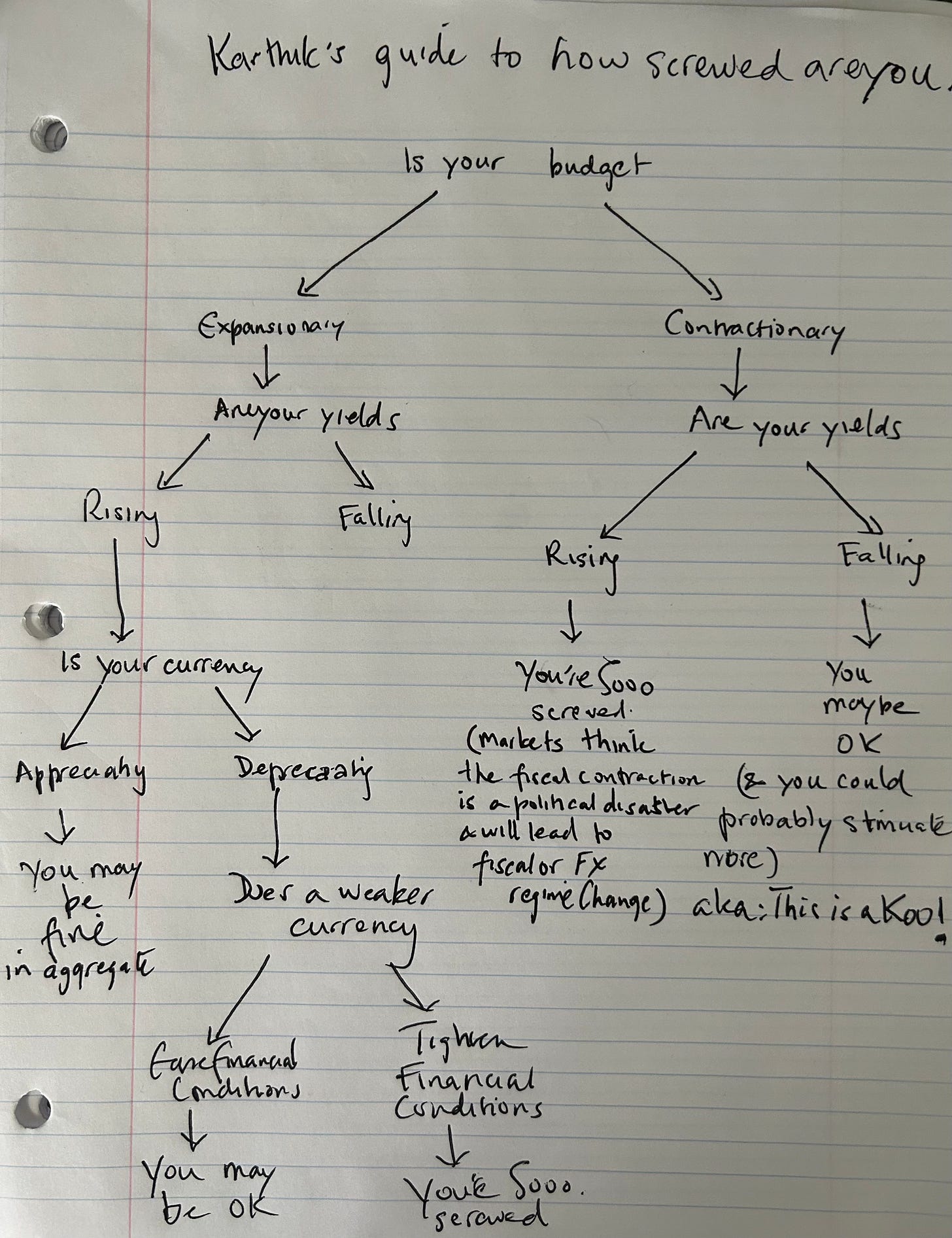Fiscal-Monetary-FX Interaction in a Picture
Or "How Screwed Are You?"
For those who have suffered through long-form Karthik in the past, here is the second reprieve in a row. It’s a very simple diagram offering (I hope) a simple diagnostic to think through the all-important question when looking at what happens to bond yields and exchange rates after a fiscal announcement. I have long maintained that vigilantism is not when bond yields rise in response to an expansionary budget, it’s when the exchange rate depreciates despite bond yields rising. So this diagram was obviously inspired by the Reeves budget, which (I may have spoken too soon) I thought was being digested somewhat better by the market than the Truss budget. (Do click on the link—it will take you to 4 execrable puns in 2 nested tweets). But for veterans of EM and EZ crises, there are a couple of other things that might seem like important things to consider—a) is the weaker exchange rate easing or tightening financial conditions and b) Would the counterfactual of a less expansionary budget have led to higher or lower yields. And what people who remember Argentina 2001 and Greece 2015 have a sense for is that fiscal contraction can sometimes lead to higher yields because of the fear that the contraction is so politically toxic it can lead to sharp changes in government, fiscal policy, or even exchange rate regimes. So here’s the diagram.
Random Enthusiasm:
Someday I’m going to write something long about foreign exchange markets in popular culture, but for now I just want to highlight the film Rollover (can rent or buy on Prime), released in 1981 starring Kris Kristofferson and Jane Fonda, and including a great performance by Hume Cronyn. While a terrible movie, the film is an extraordinary snapshot of the financial and geopolitical angst of the 1970s. The film captures a feeling rendered much better in The Crash of ‘79 by Paul Erdman, one of the greats of Globalist Airport Salaryman Pulp (GASP) Literature from that era. Other exponents of the form included Harold Robbins (the most NC-17 of the bunch), and Arthur Hailey, who went meta with the genre by actually writing a book called Airport (which then inspired not just one film in 1970, but a series including Airport ‘75, Airport ‘77 and Airport ‘79 each worse than its predecessor). Here are some screenshots that may give some hints of why I thought it worth mentioning. But what’s even more interesting about the film is that it by the time it was released (December 1981), every fear it raises had been completely exorcised by the Reagan-Volcker policy mix, which then led to a completely different set of bad outcomes borne to a significant degree outside the US.




Hey the expansionary/falling leg isn’t captioned. Is America screwed?